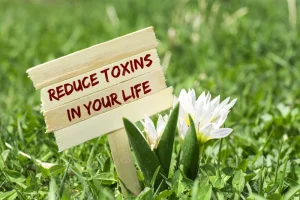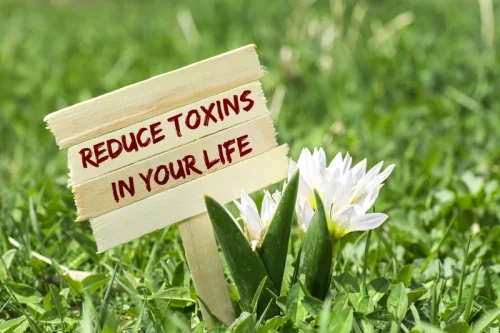
Magazine clippings, photographs, and inspiring quotes come together to form a visual representation of each person’s aspirations. It’s not just arts and crafts; it’s a tangible reminder of why they’re on this journey. CBT skills group is a course that teaches mindfulness, your emotions, and the interconnection of thoughts, feelings, and behaviors. In group CBT therapy, patients with similar conditions are placed in one group. A therapist works with the clients to identify how their negative thoughts affect emotions and behaviors.
- They help participants shift from a mindset of fear and avoidance to one of confidence and capability.
- It sounds simple, but it can be surprisingly challenging and enlightening.
- Structured activities within these groups are highly effective in promoting personal growth, enhancing self-awareness, and building strong community bonds that can bolster resilience.
- Encouraging members to share their personal stories helps build trust, empathy, and connection within the group.
Practicing Positive Thinking
Make it clear that participants do not have to share anything they write, so they’ll feel free to explore potentially surprising emotions. Group sessions provide group members with an opportunity to practice life skills including communication and establishing boundaries. Effective group leaders can help create an environment where members can challenge each other in a productive manner while practicing these life skills.
What is group therapy used for?

People will shut down if you ask them to share their most intimate thoughts from the moment they walk in the door. You need to start slow in order to ease your clients into sharing their deeper thoughts with the group. Once your group feels comfortable with each other you can start digging deeper.
Identifying Coping Mechanisms
Members share self-care routines and tips for prioritizing their well-being. This topic explores healthy techniques for managing cravings, such as deep breathing, physical activity, or connecting with a support person. By sharing methods, group members learn actionable ways to handle cravings effectively.

Engaging group discussions are essential for fostering growth and support in substance abuse recovery. The folloing 50 must-have discussion topics covers crucial areas like managing triggers, building healthy relationships, and setting recovery goals. Cognitive behavioral group therapy aims to create a collaborative environment that fosters emotional and mental well-being.
Rebuild Your Life at Red Oak Recovery®
Financial stress is common in recovery, often due to past habits or addiction-related expenses. This discussion provides strategies for managing finances, setting realistic budgets, and reducing financial stress. Budgeting can promote a sense of control and reduce triggers related to financial strain. Quality sleep is essential for mental and physical health, as poor sleep can exacerbate anxiety and cravings. Mindfulness teaches individuals to stay focused on the present moment, reducing anxiety and cravings.
- This activity helps members recognize qualities they may have overlooked and encourages them to draw on these strengths as they navigate their recovery journey.
- It’s not just arts and crafts; it’s a tangible reminder of why they’re on this journey.
- Below we’ll explore 10 activities substance abuse healthcare providers use to help promote relapse prevention and build coping skills.
- These lists can include anything you feel grateful for, from your sobriety to your loved ones to your favorite foods.
- They provide a structured way for participants to practice being present in the moment, rather than getting caught up in regrets about the past or anxiety about the future.
- Having a foundation for how to handle conflict can help prevent emotions or worries from taking over when conflict arises in life.
Top 13 Experiential Activities for Group Therapy for Addiction Recovery
Members learn techniques like deep breathing and guided meditation to stay grounded. Practicing mindfulness enables them to manage stress and remain centered in their recovery. Personal triggers are people, places, or situations that increase the urge to use substances.

Group Therapy Activities for Addiction Recovery
Regularly attending group sessions helps individuals stay on track with their recovery goals, as group members encourage each other to remain committed to sobriety. The group provides a structured environment where members are held accountable for their actions, helping them resist temptations and avoid relapse. This peer-driven approach is a vital tool for maintaining long-term sobriety, even after completing formal treatment. In the end, these group activities do more than just support recovery – they help build lives worth staying sober for. They foster resilience, emotional intelligence, and interpersonal skills that serve participants well beyond the realm of addiction recovery.
What Is Group Therapy For Substance Abuse?
By participating in group therapies and activities in residential, intensive outpatient, or aftercare settings, people can find essential support for their recovery group activities for addiction recovery journey. Setting small, realistic goals is crucial in recovery, and doing it in a group setting means you’re not doing it alone. You’ll discuss your personal goals, whether it’s going a week without using or making amends with a loved one, and the group will cheer you on. Group therapy often includes mindfulness practices like guided meditation or deep breathing. These aren’t just relaxation techniques; they’re tools that help you stay in the moment, recognizing and managing your cravings or stress before they take over.
- The goal of alumni programs is to connect people with continued support.
- Provide journal prompts to help members explore their thoughts and feelings, enhancing their self-awareness and offering a therapeutic space for introspection.
- When creating your aftercare plan, members of your treatment care team help you consider your particular situation, including whether you need housing, employment, or continued treatment.
- Below is a list of therapy topics and themes that may be used during group therapy for substance use disorders.
- American Addiction Centers (AAC) understands the importance of ongoing care.
Music Therapy

Today’s addiction recovery landscape is bursting with innovative approaches that breathe new life into the healing process. Substance abuse group activities create a supportive environment that empowers individuals on their path to recovery. These 50 activities build practical skills and encourage self-discovery, resilience, and meaningful connection with others.
Leave a Reply